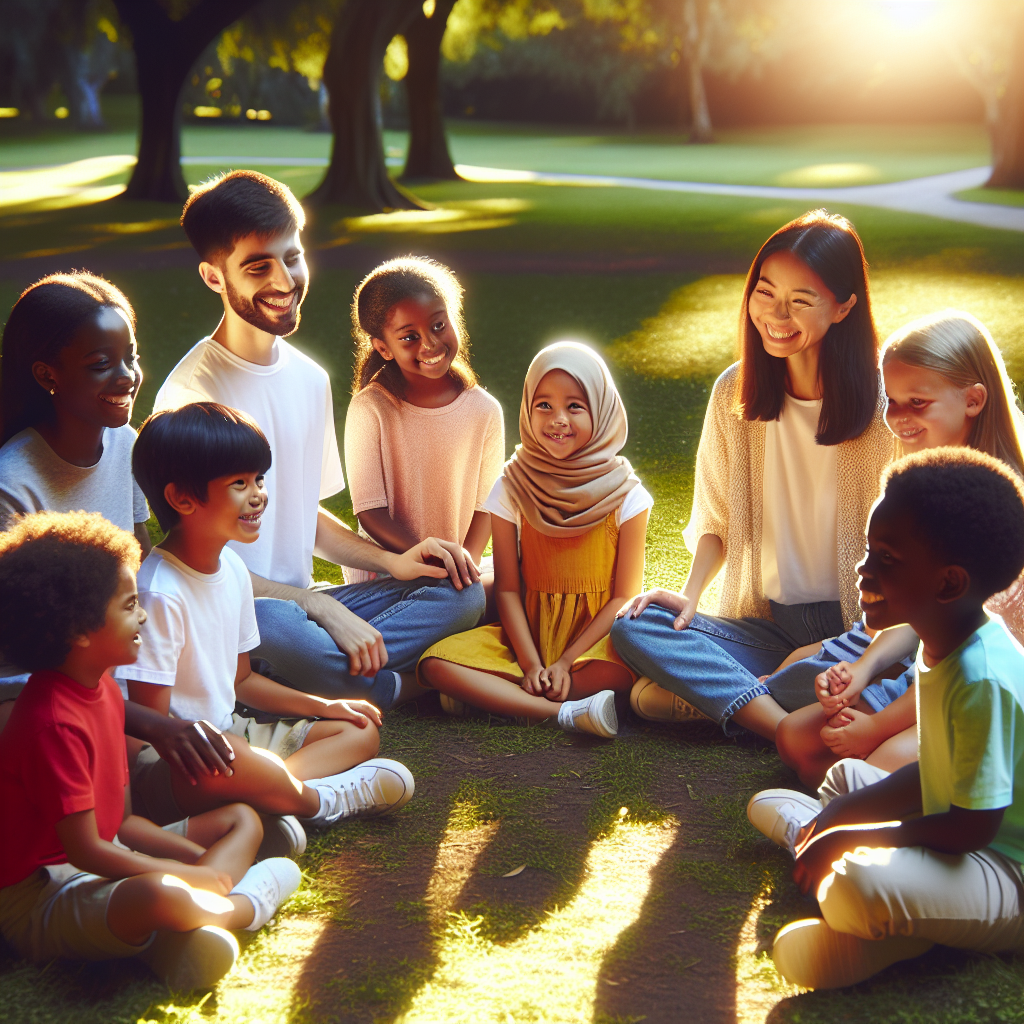Orlando Social Skills Groups for Effective Peer Interaction
- Social skills are essential for effective peer interaction and can be developed at any age.
- Socially awkward individuals may struggle with body language, social anxiety, be a target for bullying and negative beliefs.
- Early identification and intervention are crucial in addressing social challenges and building resilience.
- Social skills groups provide a structured and supportive environment for developing social skills.
- Facilitators of social skills groups can use techniques such as engaging socially awkward youths and creating a safe and inclusive environment.
- Incorporate boundaries and the right limits with technology and gaming responsibly can also enhance social skills development.
Introduction
President Trumps shooter, Thomas Matthew Crooks and school shooters show similar pattern of students that were teased relentlessly for being socially awkward. We really need to push for better identification of socially awkward students and get them in for social skills groups to help them make friends rather than be so isolated and traumatized! A mental health White House Committee identified several similar patterns of behavior that we need to look for to identify these students. The school shooters and President Trumps Shooter were mostly socially awkward, white, males in most cases and often their parents give them too much privacy, and they play violent video games which can desensitize the student and make it easier to shoot people. We need to better identify these students and have more social skills groups in the schools or in our communities to help these kids make friends and fly under the bullies radar!
Socializing well comes naturally to some individuals, while others may find it challenging. For children and teens who struggle with social skills, participating in social interactions can be anxiety-inducing and overwhelming. These individuals may be labeled as “socially awkward” due to their difficulty in navigating social situations, such as avoiding eye contact, hesitating to initiate conversations, or relying heavily on friend. It is important to understand that being introverted does not necessarily mean being socially awkward. Introverts may enjoy their alone time and can still engage in social interactions comfortably when. On the other hand, socially awkward individuals may experience social anxiety, negative beliefs about themselves, and even emotional abuse from their peers. The good news is that social, like any other life skill, can be practiced and improved at any age. By developing effective social skills, individuals can enhance their ability to connect with others, build meaningful relationships, and thrive in social settings. In this blog, we will explore the importance of social skills, the challenges faced by socially awkward individuals, the role of early identification and intervention, and how social skills groups can help in fostering effective peer interaction.
Understanding Social Awkwardness in Youth
Socially awkward individuals often struggle in various social situations, which can lead to feelings of discomfort and anxiety. They may experience negative thoughts about themselves, such as believing that they are not good enough or that others are judging them. These negative beliefs can further perpetuate their social awkwardness and contribute to feelings of isolation and low self-esteem. In some cases, socially awkward individuals may also face emotional abuse from their peers, as they may become targets for bullying and ridicule. It is important to recognize the challenges faced by socially awkward youth and provide them with the necessary support and resources to develop their social skills and navigate social interactions successfully.
The Link Between Social Skills and Mental Health
There is a strong connection between social skills and mental health. Developing effective social skills can improve an individual’s overall mental well-being and resilience. When individuals are able to navigate social interactions successfully, they experience a sense of belonging and connection, which can positively impact their self-esteem and confidence. On the other hand, poor social skills can lead to feelings of isolation, loneliness, and even depression. By equipping individuals with the necessary social skills, they are better able to handle difficult social situations, build and maintain healthy relationships, and cope with the challenges of everyday life. Social skills groups play a crucial role in promoting positive mental health by providing a supportive environment for individuals to practice and enhance their social skills.
Common Characteristics of Socially Awkward Individuals
Socially awkward individuals often exhibit common characteristics that can make social interactions challenging for them. One of the key aspects is their body language, which may appear closed-off or uncomfortable. They may have difficulty maintaining eye contact and struggle with nonverbal cues, such as facial expressions and body posture. Social anxiety is another common characteristic, where individuals may experience intense fear or anxiety in social situations, leading to avoidance or withdrawal. Negative beliefs about themselves, such as feeling unworthy or inadequate, can also contribute to their social awkwardness. It is important to recognize these characteristics and provide the necessary support and guidance to help socially awkward individuals develop more effective social skills and build their self-confidence.
The Importance of Early Identification and Intervention
Early identification and intervention are crucial in addressing social challenges and promoting resilience in youth. By identifying social struggles early on, parents and educators can provide the necessary support and resources to help children and teens develop the social skills they need. Early intervention allows individuals to learn and practice social skills in a safe and supportive environment, giving them the opportunity to build their confidence and navigate social interactions successfully. By addressing social challenges early, individuals can develop resilience and better cope with the social demands they will encounter throughout their lives.
Identifying Signs of Social Struggles in Students
Recognizing the signs of social struggles in students is essential for early intervention. Some common signs include difficulty initiating or maintaining conversations, avoiding eye contact, exhibiting negative thoughts or beliefs about oneself, and displaying closed-off or uncomfortable body language. Students who consistently struggle in social situations and show signs of social anxiety or low self-esteem may benefit from additional support and resources. By identifying these signs and providing the necessary interventions, parents and educators can help students develop the social skills they need to thrive in social settings and build positive relationships with their peers.
The Role of Parents and Educators in Recognizing Social Challenges
Parents and educators play a crucial role in recognizing social challenges in children and teens. By observing their behavior in various social situations, parents and educators can identify areas where individuals may be struggling and provide the necessary support and guidance. Additionally, it is important for parents and educators to foster a compassionate and understanding environment, where individuals feel safe to express their emotions and share their social challenges. By creating a supportive network of caregivers, individuals can receive the necessary encouragement and resources to develop their social skills and navigate social interactions successfully. This collaborative approach between parents, educators, and other professionals can significantly impact an individual’s social development and overall well-being.
How Social Skills Groups Can Help
Social skills groups offer a structured and supportive environment for individuals to develop their social skills and enhance their peer interaction abilities. These groups provide opportunities for individuals to practice and refine their social skills in a safe setting, where they can learn from their peers and receive constructive feedback from trained professionals. Participating in social skills groups can have numerous positive effects, including increased self-confidence, improved communication skills, and the ability to navigate difficult social situations. By engaging in interactive activities and trying new things, individuals can expand their social repertoire and build meaningful relationships with their peers.
The Structure and Approach of Social Skills Training
Social skills training in social skills groups typically follows a structured and systematic approach. Some key components of social skills training include:
- Learning and practicing specific social skills, such as initiating conversations, active listening, and nonverbal communication.
- Engaging in community activities that provide opportunities for individuals to apply their social skills in real-life settings.
- Gradually expanding comfort zones by encouraging individuals to step outside their social boundaries and try new social experiences.
- Providing a supportive and non-judgmental environment where individuals can learn from their mistakes and receive constructive feedback from group facilitators and peers.
- Through this structured approach, individuals can develop the necessary social skills and gain the confidence to navigate social interactions effectively.
Success Stories: Transformations Through Social Skills Groups
Many individuals have experienced transformational growth through participation in social skills groups. By actively engaging in social skills training and practicing their newly acquired skills, individuals have been able to overcome their social challenges and build more fulfilling social lives. Some success stories include:
- Developing the ability to initiate and maintain conversations, leading to the formation of new friendships and meaningful connections.
- Gaining confidence in social settings, which has translated into increased participation in social activities and events.
- Cultivating resilience and the ability to navigate difficult social situations with grace and composure.
- These success stories highlight the positive impact of social skills groups in fostering social growth and enhancing individuals’ overall well-being.
Best Practices for Social Skills Group Facilitators
Facilitating social skills groups requires skill and expertise to create a supportive and engaging environment. Some best practices for social skills group facilitators include:
- Building a rapport with participants by showing genuine interest and understanding.
- Tailoring interventions and activities to meet the specific needs and goals of each individual.
- Providing constructive feedback and guidance in a non-judgmental and supportive manner.
- Encouraging active participation and collaboration among group members.
- Continuously assessing and adjusting the group’s dynamics and activities to ensure optimal engagement and progress.
- By following these best practices, social skills group facilitators can create a nurturing and empowering space for individuals to develop their social skills and thrive.
Techniques for Engaging Socially Awkward Youths
Engaging socially awkward youths in social skills groups requires a thoughtful approach that respects their comfort zones while encouraging growth. Some techniques for effectively engaging socially awkward youths include:
- Gradually expanding their comfort zones by introducing new social experiences and activities.
- Providing clear and concise instructions and explanations to reduce anxiety and confusion.
- Incorporating visual aids and hands-on activities to enhance understanding and engagement.
- Encouraging active participation and allowing for individual differences in learning styles and preferences.
- Creating a safe and non-judgmental environment where individuals feel comfortable expressing themselves and taking risks.
- By employing these techniques, facilitators can help socially awkward youths develop their social skills and gain confidence in social settings.
Creating a Safe and Inclusive Environment
Creating a safe and inclusive environment is essential for the success of social skills groups. Some key strategies for creating such an environment include:
- Promoting positive body image and self-acceptance by emphasizing the importance of inner qualities and strengths.
- Encouraging open and respectful communication among group members, fostering a sense of belonging and acceptance.
- Implementing guidelines and rules that promote fairness, empathy, and inclusivity.
- Recognizing and celebrating individual differences and unique perspectives, creating a culture of diversity and acceptance.
- Providing resources and support for individuals who may be experiencing social challenges or facing discrimination.
- By prioritizing the creation of a safe and inclusive environment, social skills groups can maximize the positive effects of the program and ensure that all participants feel valued and supported.
Incorporating Technology and Gaming Responsibly
In today’s digital age, it is important to incorporate technology and gaming responsibly into social skills development. Technology and gaming can offer innovative ways to practice social skills and engage individuals in social interactions. Some strategies for incorporating technology and gaming responsibly include:
- Using virtual platforms or apps that simulate social scenarios for individuals to practice their social skills.
- Encouraging online interactions that promote positive communication, empathy, and collaboration.
- Setting clear boundaries and time limits for technology and gaming activities to ensure a healthy balance with real-life social interactions.
- By harnessing the benefits of technology and gaming while promoting responsible use, social skills groups can enhance individuals’ social skills development in a modern and engaging way.
Balancing Screen Time with Social Interaction
Engaging in Orlando Social Skills Groups involves finding a balance between screen time and real-world social interaction. This balance is crucial for developing effective peer interaction skills. Encouraging youths to participate in community activities and limit excessive screen time fosters social engagement and communication. By striking a balance, individuals can enhance their social skills while still enjoying the benefits of technology. It’s about leveraging the positive effects of technology without compromising valuable face-to-face interactions. This equilibrium supports holistic development and strengthens social connections.
Positive Uses of Technology in Social Skills Development
Technology can be a valuable tool in social skills development, offering innovative ways to practice and improve interactions. Virtual simulations and online platforms provide a safe environment to engage with others, enhancing communication abilities. Apps and games designed for social skills training can help individuals navigate social situations and build confidence. Video conferencing allows for remote participation in group sessions, making it accessible for a wider audience. Integrating technology wisely can complement traditional methods and facilitate learning in a dynamic and engaging manner.
Collaborative Efforts Between Schools and Mental Health Professionals
Developing school-based social skills programs requires a collaborative approach between schools and mental health professionals. By combining educational expertise with mental health insights, tailored interventions can be designed to support students effectively. Training for teachers on social skills enhancement can enhance the classroom environment and provide additional support to students facing social challenges. Such collaborative efforts create a holistic approach to addressing social struggles in educational settings, fostering a more inclusive and supportive environment for all students.
Developing School-Based Social Skills Programs
School-based social skills programs play a vital role in nurturing students’ interpersonal abilities. Incorporating NLP techniques can enhance these programs by promoting a positive mindset and effective communication. Offering support tailored to individual needs boosts confidence and resilience. By addressing social anxiety and promoting positive beliefs, these programs create a conducive environment for growth. Consultation with experts in mental health and social skills ensures the implementation of evidence-based practices for optimal outcomes.
Training for Teachers on Social Skills Enhancement
Teachers play a crucial role in fostering social skills development in students. Training programs focusing on social skills enhancement equip educators with strategies to support students facing social challenges. These programs emphasize understanding NLP concepts like body language and social cues to create inclusive classroom environments. By providing teachers with tools to enhance students’ social interactions, schools can proactively address social anxiety and promote positive social behaviors. Effective training enables teachers to identify and address social difficulties early, nurturing a supportive educational environment.
Conclusion
In conclusion, Orlando Social Skills Groups play a crucial role in nurturing effective peer interactions and mental well-being among youths. Early identification and intervention are key to addressing social struggles, with the support of parents, educators, and specialized programs. These groups offer a structured and inclusive environment for youths to enhance their social skills, fostering positive transformations and improved relationships. By incorporating technology responsibly and promoting collaborative efforts between schools and mental health professionals, we can empower youths to navigate social challenges successfully. If you’re seeking reputable Social Skills Groups in Orlando, consider the impact these programs can have on your child’s academic performance and overall social development.
Frequently Asked Questions
What Are the Signs My Child Might Benefit from a Social Skills Group?
If your child struggles to make friends, has difficulty understanding social cues, or exhibits anxiety in social situations, they might benefit from a social skills group. Look for signs of isolation or frustration in social settings.
How Do I Find a Reputable Social Skills Group in Orlando?
Look for reputable social skills groups in Orlando by seeking recommendations from schools, therapists, or online directories specialized in mental health services. Consider factors like group size, facilitator qualifications, and program structure when making your decision.
What Are the Signs My Child Might Benefit from a Social Skills Group?
Some signs that your child might benefit from a social skills group include difficulty making friends, negative beliefs about themselves or others, and challenges in navigating difficult social situations. If your child consistently struggles in social interactions or experiences isolation, a social skills group can provide the support and guidance they need to improve their social skills and build positive relationships.
How Do I Find a Reputable Social Skills Group in Orlando?
To find a reputable social skills group in Orlando, you can start by consulting with your child’s school or pediatrician. They may be able to provide recommendations or refer you to local resources. Additionally, you can research online and look for reviews and testimonials from other parents. It is important to find a group that aligns with your child’s needs and offers a structured and supportive environment for social skills development. Consider visiting the group, speaking with the facilitators, and ensuring that the program includes community activities and opportunities for real-life practice.
Can Social Skills Training Positively Impact Academic Performance?
Yes, social skills training can have a positive impact on academic performance. By developing social skills, students gain the confidence and interpersonal skills necessary to navigate social situations in and out of the classroom. This can lead to improved communication, collaboration, and problem-solving abilities, which are essential for academic success. Additionally, social skills training promotes resilience, compassion, and empathy, which contribute to a positive and inclusive learning environment. By enhancing social skills, students are better equipped to manage stress, build healthy relationships, and excel academically.
In conclusion, Social Skills Groups provide valuable support and guidance for individuals who struggle with social interaction. These groups offer a structured and inclusive environment where participants can learn and practice effective peer interaction skills. By focusing on mental health, social skills development, social anxiety, body language, and the positive effects of social media, Orlando Social Skills Groups aim to empower individuals to navigate social situations with confidence and build meaningful relationships. Through collaborative efforts between schools and mental health professionals, the development of school-based social skills programs, teacher training, and the utilization of technology, individuals can enhance their social skills and thrive in both their personal and professional lives.
Orlando Social Skills Groups & Resources:
How to Build Social Skills & Fly Students Under the Bullies Radar
Orlando Social Skills Coaching
Total Life Counseling Spotify Podcast
Stressless Educational Series for Social Skills, ADHD & Autism
Filed in: Aspergers, Autism, Blog, Brandon Feinberg, Bullying, Bullying in the School, Bullying Tips | Parents & Students, Children, Dance Camps, David Duany, Day Camps, Gaming, Jim West, Oppositional Defiance Disorder, Orlando, Products, Self Esteem, Self Harm, Self-Care, self-esteem, Self-growth, Social Skills, Social Skills Group Curriculum, Stressless, Summer Camps, Teens, Video and Social Media Addiction
Share This Story, Choose Your Platform!
Total Life Counseling Center consists of Licensed Counselors, masters level therapists, Español counselors, Licensed Mental Health Counselors, business coaches, and image enhancement coaches who provide counseling for emotional, mental, physical and spiritual care including marriage, individual, family, substance abuse and more. TLC’s family, trauma and marriage experts have been interviewed on National and Local TV/Radio over 200 times for their expert advice on Fox News, OWN, WETV, ABC’s Medical Minute and more. Our skilled counselors are relational, approachable and specialists providing therapy services in the Central Florida area including: Orlando, Winter Park, MetroWest, Windermere, Dr. Phillips, East Orlando, Lake Mary, and Clermont, Boca Raton Florida, and Dallas, TX.






